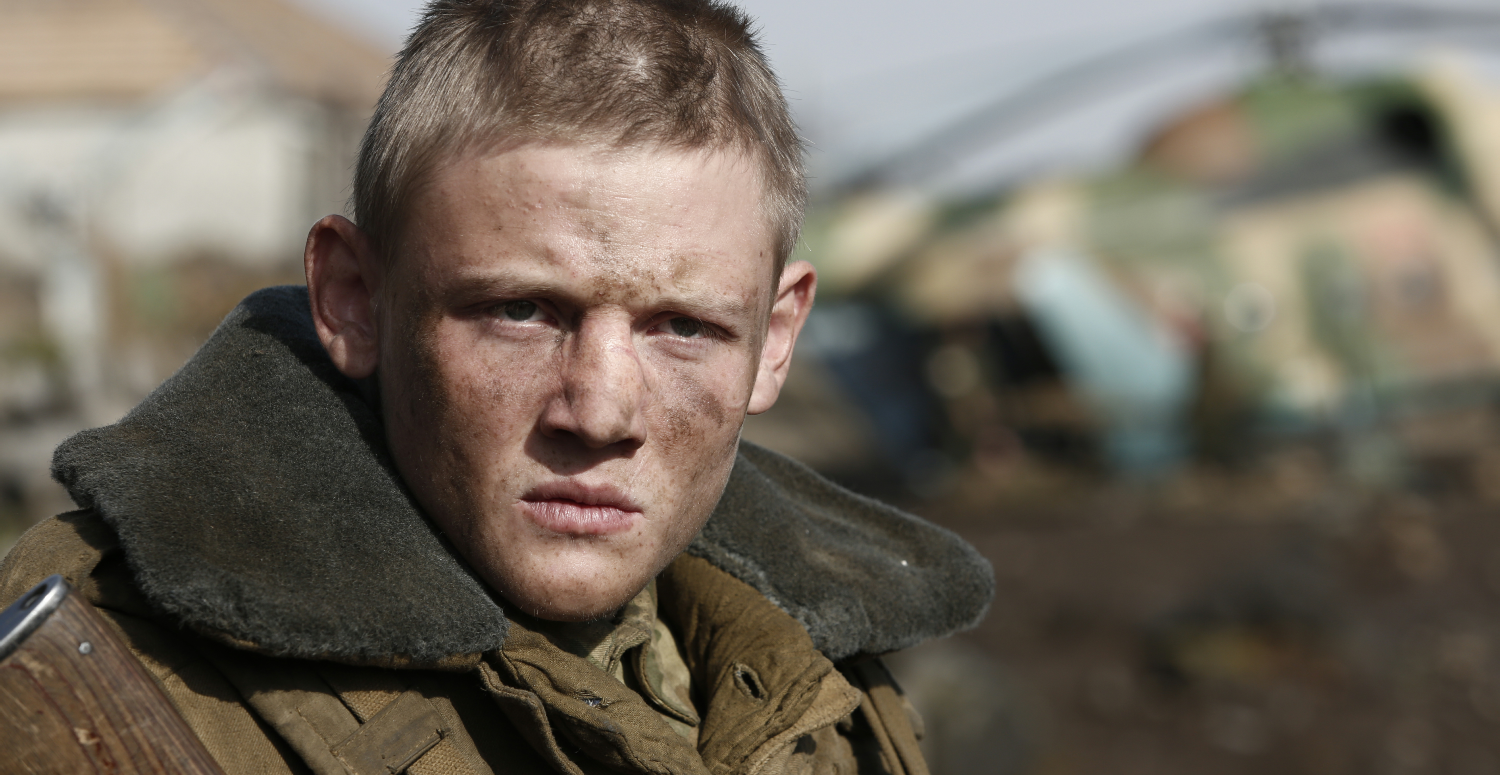The Search
2014

FR EN
A l’occasion de la sortie en salles de « Coupez » après sa présentation en ouverture du Festival de Cannes 2022 et du contexte géopolitique actuel avec l’invasion russe en Ukraine, une petite rétrospective sur un précédent film de Michel Hazanavicius s’impose !
« The Search » se déroule durant la seconde guerre de Tchétchénie en 1999. Il raconte trois destins que cette guerre officiellement présentée comme une “opération anti-terroriste” va amener à se croiser : celui d’un petit garçon fuyant la guerre dans le flot de réfugiés, une chargée de missions de la Commission des Droits de l’Homme de l’UE, et un jeune Russe enrôlé dans l’armée. Le parallèle avec la situation actuelle en Ukraine et en particulier à l’Est de l’ex République soviétique est indéniable et était d’ores et déjà présent à la sortie du film puisqu’il fut présenté en compétition officielle à Cannes en 2014 quelques mois après l’annexion de la Crimée.
Adapté du film « Les Anges Manqués » (1948) de Fred Zinnemann, « The Search » est le premier film d’Hazanavicius après son Oscar pour « The Artist » et s’avère être un film moins porté sur le cinéma et plus personnel dans la mesure où sa famille lituanienne est d’origine juive ashkénaze et dut fuir et se cacher lors de la Seconde Guerre Mondiale.
C’est un film lent et émouvant notamment du fait du pesant silence du jeune protagoniste. Mais c’est bien évidemment un silence qui fait sens face à ce qu’il a vécu. La progression narrative est par ailleurs assez classique dans le sens où l’on s’y attend mais pas parce qu’il s’agit d’un scénario cousu de fil blanc mais plus parce que la guerre est devenue une banalité que l’on a pris l’habitude de regarder de loin. C’est aussi un film fort qui se distingue par un grain particulier, des couleurs ternes et des caméras à l’épaule lors des scènes de guerre, lui conférant un look très réaliste. Son message est clair et traite la question des deux côtés de la frontière civile, avec l’accueil des réfugiés et le rôle des institutions internationales voisines, mais aussi avec l’endoctrinement de l’armée russe transformant complètement leurs jeunes recrues à la manière de « Full Metal Jacket ». Le film conclut par ailleurs sur une excellente surprise chronologique.
Le jeune Abdul Khalim Mamutsiev est très attachant dans le rôle principal avec à ses côtés une Bérénice Bejo impuissante mais volontaire, une Annette Bening qui fait de son mieux avec la Croix Rouge, et un remarquable Maksim Emelyanov dans le rôle du jeune soldat russe.
La longueur du film (2h14), son aspect multilingue (anglais, français, russe, tchétchène) et ses scènes de mélo ont sûrement pesé sur l’accueil très mitigé qu’il reçut et qui fut confirmé par un impressionnant flop au box-office (22M€ de budget pour seulement $434.000 de recettes). Si le film avait été américain il aurait probablement eu droit à plus de louanges, mais quoi qu’il en soit c’est un beau film – certainement le plus atypique de la filmographie d’Hazanavicius – portant un message universel et une histoire qui mérite d’être revisitée aujourd’hui.
“The Search” takes place during the second Chechen war in 1999. It tells the story of three destinies that this war, officially described as an « anti-terrorist operation », will intersect: a little boy fleeing the war in the stream of refugees, a woman appointed by the EU Human Rights Commission, and a young Russian enlisted in the army. The parallel with the current situation in Ukraine and in particular in the eastern part of the former Soviet Republic is undeniable and was already there when the film was released since it was presented in the official competition at Cannes in 2014 just a few months after the annexation of Crimea.
Adapted from Fred Zinnemann’s “The Search” (1948), Hazanavicius’s first film after his Oscar for “The Artist” proves to be a less cinema-oriented and more personal film insofar as his Lithuanian family is of Ashkenazi Jewish origin and had to flee and hide during World War II.
It is a slow and moving film, especially because of the heavy silence of the young protagonist. But obviously this silence makes sense in light of what he experienced. The storyline is quite conventional insofar as it is somewhat predictable, but not because the script is so weak, but rather because war has become a commonplace that we become accustomed to watching from afar. It is also a strong film characterized by a specific texture, dull colors and hand-held cameras during the war scenes, giving it a very realistic look. Its message is clear and tackles the issue on both sides of the civil border, with the accommodation of refugees and the role of neighboring international institutions, as well as with the indoctrination of the Russian army completely transforming their young recruits a la “Full Metal Jacket”. The movie also wraps up with a great chronological twist.
The young Abdul Khalim Mamutsiev is very endearing in the main role with a helpless but willing Bérénice Bejo, an Annette Bening who does her best with Red Cross, and a remarkable Maksim Emelyanov as the young Russian soldier.
The length of the film (134 minutes), its multilingual aspect (English, French, Russian, Chechen) and its melo scenes surely weighed on the very mixed reception it received which was further confirmed by a huge flop at the box-office (a 22M€ budget for only $434,000 in worldwide box-office). If the film had been American, it would probably have received more praises, but in any case, it is a beautiful picture – certainly the most unusual of Hazanavicius’ filmography – conveying a universal message and a story that deserves to be revisited today.

